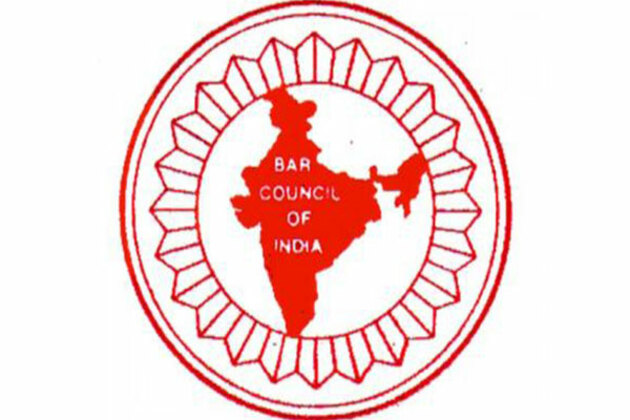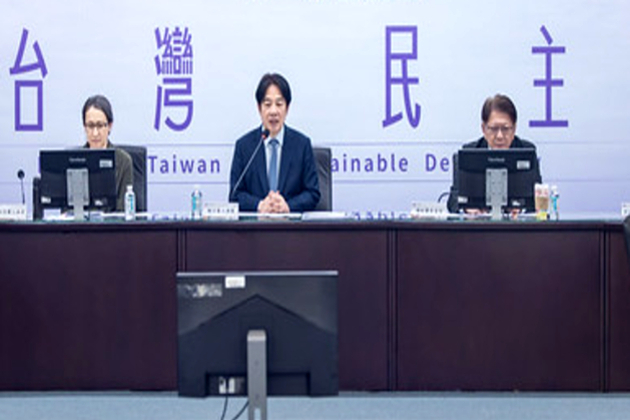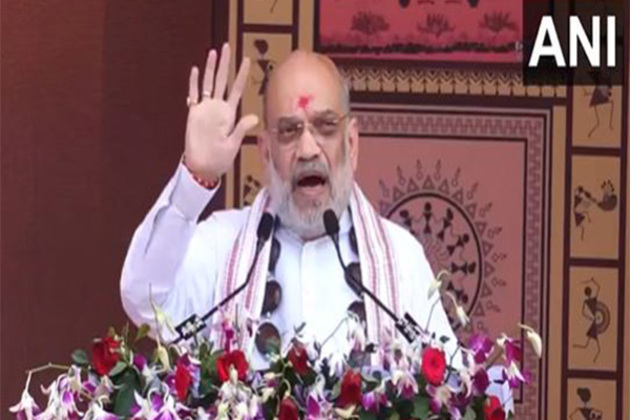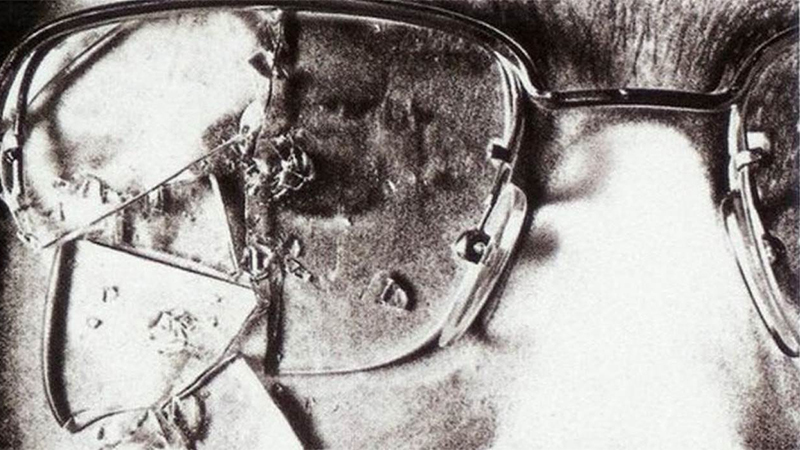BCI hails Waqf Bill as game-changer for transparent governance
ANI
05 Apr 2025, 20:14 GMT+10

New Delhi [India], April 5 (ANI): The Bar Council of India (BCI) has expressed strong appreciation for the Waqf Amendment Bill, highlighting its role in addressing long-standing deficiencies in previous legislation.
The BCI emphasised that the Bill will ensure Waqf properties are managed efficiently, serving their intended purpose of community welfare while fostering communal harmony, sustainable socio-economic development, and justice for historically disadvantaged groups.
In what is being hailed as a historic legislative milestone, the Rajya Sabha passed the Waqf (Amendment) Bill on March 4, 2025, marking a transformative shift towards transparent and effective governance of Waqf assets.
The Bill was strongly supported by Manan Kumar Mishra, Chairman of the Bar Council of India, Senior Advocate at the Supreme Court, and Member of Parliament (Rajya Sabha). He emphasized its necessity in correcting inefficiencies, eliminating corruption, and ensuring greater accountability in Waqf property management.
Renaming the Waqf Act of 1995 as the 'Unified Waqf Management, Empowerment, Efficiency, and Development Act,' the Bill embodies a forward- thinking legislative intent, significantly enhancing administrative efficiency, accountability, and transparency.
Mishra emphasized that the previous act had significant gaps that facilitated extensive mismanagement and corruption, harming the interests of marginalized sections of the Muslim community.
By introducing stringent safeguards, the Bill ensures adequate protection and better utilisation of Waqf assets, aligning closely with contemporary needs and constitutional principles.
Some pertinent and beneficial aspects of Waqf (Amendment) Bill, are as follows - renaming of the act (Section 1)- the new title clearly communicates an evolved legislative purpose aimed at empowerment, efficiency, and comprehensive development. This reform directly addresses historical inefficiencies, creating a robust legal and administrative framework to enhance community welfare and asset management.
Amendment to Definitions (Section 3)- Introducing specific sect-based waqf categories like Aghakhani and Bohra ensures the inclusivity and recognition of diverse community practices. This amendment effectively addresses earlier shortcomings where a lack of specificity led to disputes and mismanagement.
Conditions of Waqf and Lawful Ownership (Section 3A) - Establishing lawful ownership as a mandatory condition for dedicating property as Waqf prevents fraudulent claims and reinforces the credibility and integrity of Waqf institutions.
Filing of Waqf Details (Section 3B)- Mandating a centralized digital registry significantly enhances transparency and accountability. It effectively addresses chronic mismanagement and administrative neglect, facilitating real-time Ioversight and public access to critical information about Waqf assets, stated the press statement issued by BCI.
Wrongful Declaration (Section 3C) - Clearly distinguishing government properties from Waqf assets, this provision reduces disputes and litigation, protecting both government and Waqf assets from unauthorised claims and misuse.
Transfer of Survey Powers to Collectors (Section 5)- Assigning survey responsibilities to Collectors leverages their extensive administrative capabilities, streamlining the survey process, improving accuracy, and ensuring timely protection against encroachments and mismanagement.
Publication of Waqf Lists (Section 6)- Requiring the timely publication of property lists on a centralized digital platform significantly mitigates administrative delays, reduces encroachments, and enhances public oversight, addressing historical challenges of transparency and property management.
Power of Tribunals and Judicial Oversight (Section 7)- Allowing High Court appeals against tribunal decisions safeguards against potential miscarriages of justice, enhancing fairness, judicial scrutiny, and accountability within Waqf dispute resolution mechanisms.
Classification Disputes (Section 8): Providing a formal legal mechanism for resolving disputes related to sect-specific classification ensures impartial decision-making, reducing sectarian tensions, and reinforcing social cohesion and legalclarity.
Expanded Representation on Central and State Waqf Councils (Sections 9 & 14)-Inclusion of women, non-Muslims, and sect-specific representatives ensures diverse expertise and comprehensive oversight, directly improving governance,transparency, and accountability of Waqf properties. This aligns closely with mandates of equality, non-discrimination, and effective administration.
Establishment of Separate Boards for Sect-Specific Management (Section 10)- The creation of distinct boards for Bohras and Aghakhanis addresses unique sectarian needs, ensures better resource management, and mitigates internal community disputes, significantly enhancing operational efficiency and satisfaction.
Removal of Section 40 (Old Act)-The removal of the previously existing Section 40, which vested unchallengeable power in the Waqf Board, is a crucial reform that significantly increases transparency, accountability, and openness to scrutiny, correcting a substantial oversight in earlier legislation.
Mishra further clarified that Article 26 of the Constitution, while guaranteeing the right to manage religious affairs, is not absolute and is subject to state regulation in the interests of public order, morality, and health. He emphasized that provisions in the Limitation Act are crucial to curbing endless litigation, thus creating certainty and facilitating quicker administration of justice. He highlighted that new legislative enactments rightfully render obsolete outdated court interpretations, including the contentious 'waqf by user' provision.
Additionally, addressing historical injustices, he stressed that the previous Acts facilitated significant misappropriation of waqf properties, disproportionately impacting marginalized communities like the Pasmanda Muslims. The appellate jurisdiction provided to High Courts is a substantial step toward remedying these injustices. The clarification regarding Sections 51, 52, and53 of the old Act, which allowed conditional alienation, settlement, lease, and sale of waqf properties, further supports the necessity of comprehensive reform.
The Waqf (Amendment) Bill emerges as legislation, capable of transforming the governance landscape of Waqf properties, protecting community interests, and significantly enhancing the efficacy and transparency of Waqf management, stated official statement issued by BCI. (ANI)
 Share
Share
 Tweet
Tweet
 Share
Share
 Flip
Flip
 Email
Email
Watch latest videos
Subscribe and Follow
Get a daily dose of India Gazette news through our daily email, its complimentary and keeps you fully up to date with world and business news as well.
News RELEASES
Publish news of your business, community or sports group, personnel appointments, major event and more by submitting a news release to India Gazette.
More InformationBusiness
SectionGhibli-inspired AI art boosts ChatGPT usage
SAN FRANCISCO, California: A wave of Ghibli-inspired AI artwork has sent ChatGPT usage skyrocketing, as users have embraced the image-generation...
Virgin Atlantic sees dip in US-UK travel amid economic uncertainty
LONDON, U.K.: Virgin Atlantic is seeing signs of cooling demand from U.S. travelers heading to the UK, a shift that comes after a strong...
Wall Street sheds nearly 6% more as tariffs continue to take toll
NEW YORK, New York - The rout in U.,S. and global stock markets continued and even heightened on Friday, as investors around the world...
FCC investigates Disney, ABC amid diversity policy scrutiny
WASHINGTON/LOS ANGELES: The U.S. government is intensifying scrutiny of corporate diversity policies, with Disney and ABC now under...
US states compete for role in smaller next-gen nuclear power
HARRISBURG, Pennsylvania: New, cheaper nuclear power is on the way, and U.S. states are competing to build and supply the next generation...
Taiwan's President Lai gathered officials ahead of Trump's tariffs speech
TAIPEI, Taiwan: Taiwan's leadership was on high alert ahead of the U.S. tariff announcement, with President Lai Ching-te convening...
Delhi
Section"Rahul Gandhi was sleeping in Parliament": Shahnawaz Hussain slams Congress over Waqf Bill
New Delhi [India], April 5 (ANI): BJP leader Shahnawaz Hussain on Saturday strongly criticized Congress for its stance on the Waqf...
Indian seafood exports to face significant pressure due to US reciprocal tariffs, says FICCI study
New Delhi [India], April 5 (ANI): Indian seafood exports will face significant pressure following the imposition of the US reciprocal...
BCI hails Waqf Bill as game-changer for transparent governance
New Delhi [India], April 5 (ANI): The Bar Council of India (BCI) has expressed strong appreciation for the Waqf Amendment Bill, highlighting...
JD(U) supported Waqf Bill after its suggestions were included: party spokesperson Anjum Ara
Patna (Bihar) [India], April 5 (ANI): JD(U) leader Anjum Ara on Saturday said that her party supported the Waqf (Amendment) Bill only...
Chhattisgarh: Amit Shah highlights scheme under which village aiding full Naxal surrender to get Rs 1 crore
Dantewada (Chhattisgarh) [India], April 5 (ANI): Union Home Minister Amit Shah on Saturday highlighted a new initiative incentive announced...
Hindus celebrate Basanti Puja in Bangladesh amid tension
Netrakona [Bangladesh], April 5 (ANI): Netrakona, a Hindu-dominated small district town in northeastern Bangladesh, is famous for its...












